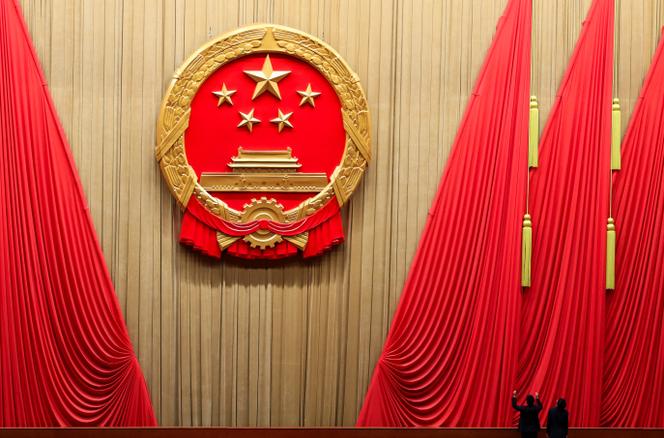


China's biggest week of the year in politics came to a close on Monday, March 11. For the first time in 30 years, it occurred without the event that grants the media a rare and direct exchange with one of the country's top leaders. The premier's press conference was simply scrapped. On the same day, the National People's Congress voted on a text that clarified, if it wasn't clear, the workings of the government and its subservience to the Chinese Communist Party (CCP).
The amendment to the law that has governed the institution for the past 41 years and since the economic reform specifies that the State Council of the People's Republic of China, the government's official name, "is the highest executive body" and the country's "highest administration," but that its role is also to "resolutely implement the decisions of the Central Committee" of the CCP, whose authority it must "resolutely protect." The text mentions the ideological principles that will guide it, notably "Marxism-Leninism" and "Xi Jinping Thought on Socialism with Chinese Characteristics for a New Era." And while it mentions the priority given to transparency, it does not specify how it might be reinforced.
This law is unlikely to change the way that China's institutions operate overnight, but 11 years after Xi's ascent to the pinnacle of power, it does add to an obvious trend: The party strengthens and decides, while the government merely applies. Freshly appointed as premier in March 2023, Li Qiang made it clear at the opening of his first – and possibly last – press conference that the role of the State Council was to "implement" the "important decisions" made by the Central Committee. "With the adoption of this text, the superiority of the party vis-à-vis the government is further reinforced, with a party that decides and state institutions that merely execute," said Alice Ekman, Asia analyst at the European Union Institute for Security Studies (EUISS).
This asserted hierarchy makes premier Li a far less prominent figure than his predecessors. Wen Jiabao (premier from 2003 to 2013), for example, had forged an image of a man of the people by drinking soup with Guangxi villagers during the Lunar New Year, or by speaking through a megaphone to survivors trapped in the rubble of the Sichuan earthquake in 2008 – an image that was severely damaged at the end of his term by a corruption scandal. "Obviously, everyone already knows that supreme power lies with the party, but Xi Jinping needs to make this clear again and again, in black and white," said Willy Lam, China specialist at the Washington-based Jamestown Foundation.
You have 58.51% of this article left to read. The rest is for subscribers only.
